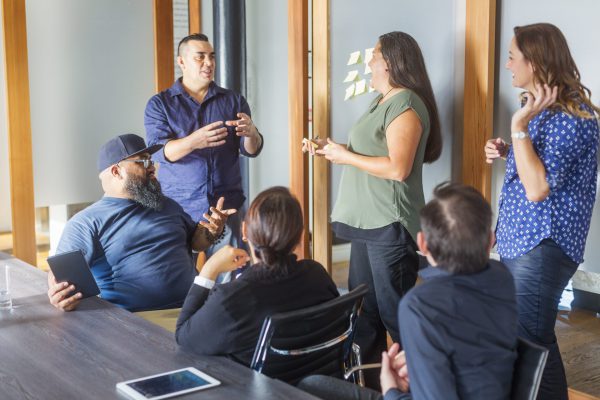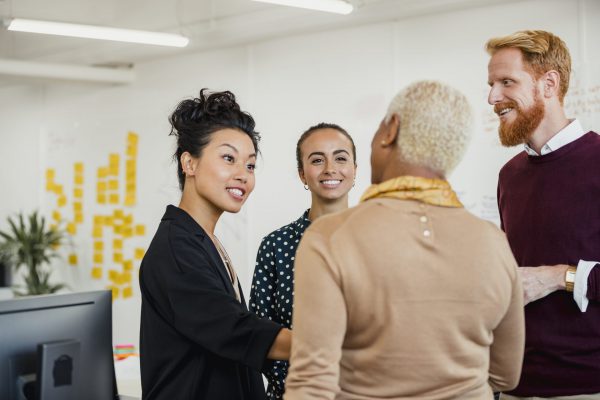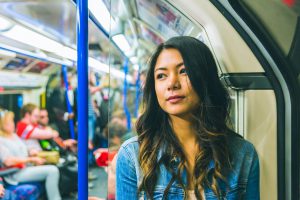Join me
-
Community groups
Being part of a community group can help grow your sense of belonging and contribute to a sense of collective belonging. Participants spoke about how community and related groups bring people together around shared passions and goals. They shared how coming together around shared interests, meeting new people, and becoming part of a community helps break down barriers.
The only time I felt comfortable was when I started coming here [the community centre].
-
The only time I felt comfortable was when I started coming here [the community centre].
-
Sit and Be Fit Group - elderly, intellectual disability, other disability people do mobility and falls prevention exercise. I’ve been going on 18 years. They’ve been very inclusive.
-
For newcomers, [we] take them personally to activities to introduce them to those activities, to give them that first nudge. Offering them support is important to give them sense of belonging. [xx] and the team help them out by picking up their kids from school, taking them to swimming, etc.
-
No-one else filled that role [individual who had put significant effort into the area, and welcoming/integrating new people]. There’s a Newcomers’ Network, they do little workshops and activities, tea and talking, baking competitions, crafts. Nice service that the community provides.
-
-
Events
Taking part in local events, from cultural festivals to MeetUp groups, can help you feel a sense of belonging and community connection. Meeting others who live near you and sharing experiences with them can help bridge gaps across differences. Participants talked about how sharing food, religious festivals, music and culture enabled community.
Every year in March we participate in race unity day. It’s a cultural diversity day, and we are invited to share our culture, food, dress.
-
Every year in March we participate in race unity day. It’s a cultural diversity day, and we are invited to share our culture, food, dress.
-
There is support and kindness and respect for each other’s festival, events and for each other.
-
I was invited by a Māori Muslim woman to the Eid festival to teach how to make poi, and I felt a strong sense of belonging there, with the Muslim people.
-
-
Living in diverse communities
When you live with others who are different from you, it can help grow your sense of belonging. Participants spoke about the power of feeling both unique and part of the diversity in the communities where they lived. They shared how events and sharing food, culture and conversations helped both highlight and celebrate difference.
There is a great word from Germany, which is gestalt – it means ‘parts,’ we have many parts and together we are greater.
-
There is a great word from Germany, which is gestalt – it means ‘parts,’ we have many parts and together we are greater.
-
I can see when people decided not to talk to each other, problems start to grow. Because although we have a different faith, we are all together. As an example: the community here is not predominantly Muslim, but they do make lots of events. Me being Muslim, I don't mind going with them, I have a different faith but they do welcome me and the way they treat their people is the way they treat me. I don't feel like I am from another religion. For example , Christian community picnics and the aim is to unite people - and they do this very successfully, they bring in other faith groups. They are volunteers from a particular church - and he has gone into different churches and said we need to welcome everyone together. The concept and approach he is doing, they are doing as a group, is very successful. One event a month.
-
There’s also a thing about unity amongst diversity. Beautiful thing when you find these places that I like to go, common spaces where a lot of travellers like to go. Huge diversity of people together, sharing food and music, conversation, getting to know each other. That’s where I feel like I belong.
-
I was brought up with Lebanese and Chinese in Otago. We stuck with the Māori children. We connected well them. My best friend from 5 years old is still my best friend for 65 years.
-
My kids went to a very multicultural school, 40+ different cultures, and they celebrated the cultures too. Because their school was next to the Uni [Canterbury], so lots of kids of professors who came from all over.
-
As a recent migrant, where there’s this cultural and societal belonging and legal belonging. If you don’t have the right to live and work here, literally you can’t be here. Once you achieve that, whether or not I’m able to interact with any New Zealanders, from my culture of origin, and the NZ culture. As a colonised country there has been a lot of cultures in NZ. I’ve been trying to learn Te Reo. When I find a balance between Māori, Pākeha and my own culture.
-
Got connected with more communities – was a positive. We are one, e.g. with Māori, many times invited by them, invited them to come to us. After March 15. Māori community looking after us more. When they see other cultures being included, “we can express ourselves more”.
-





